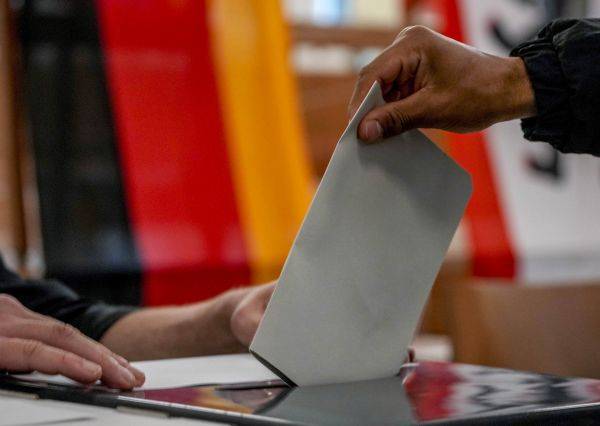Original title: German media attention: the last fight of candidates of all parties before the German general election
Reference News Network reported on September 26 that on September 25, the website of German news television channel published the article "candidates make the final alliance statement", which checked the last round of election activities and public statements of candidates of all parties before the German general election. The full text is excerpted as follows:
In their last public appearance before the general election on Saturday, candidates from all parties once again publicized their own and their party's election platform. The current Chancellor Angela Merkel and the candidate for Prime Minister of the Coalition Party (CDU / CSU), Amin Raschet, appeared in Raschet's hometown of Aachen to win the support of voters. At the same time, Merkel and Raschet also warned against excluding the coalition party from forming a government.
Olaf Scholtz, the candidate for Prime Minister of the Social Democratic Party, stressed his desire to form an alliance with the green party. "This is my favorite way of alliance," he said during his last campaign before the general election in Potsdam. Scholz called on voters to make the SPD the most powerful party through their own vote. Anna Lena belburke, the candidate of the green party, is also the party's direct candidate in the Potsdam constituency. In the latest poll, the support rate of the Social Democratic Party is higher than that of the coalition party and the green party.
Scholtz also gave an interview with the editorial department of "media pioneer" in Potsdam on Saturday. He was more cautious about the view of Kevin Chanet, vice chairman of the party, that members of the Social Democratic Party should vote before forming a ruling coalition. Scholtz said, "we will make a decision on this issue at that time." qunar hinted that the Social Democratic Party would not participate in the formation of a new government without consulting its members on the formation of a ruling coalition.
In the interview, Scholtz also stressed his good relationship with Christian Lindner, chairman of the Liberal Democratic Party. As a potential coalition partner, the LDP may play a decisive role after the election.
Lindner also reiterated the day before the election that he would remain tough in the negotiations on the possible formation of a government. In 2017, the LDP interrupted the negotiations on forming a "Jamaica alliance" with the coalition party and the green party, because it was worried that Germany might be pushed to the "left leaning road led by the coalition party and the green party, and the LDP could only be marginalized". This time, the LDP will be so firm. "In 2021, we do not want to let Germany go to the left." the LDP only supports a "middle government" that will not raise taxes and will not relax the debt brake.
Lindner is critical of the Social Democratic Party and the green party. But after Sunday's general election, the LDP may form a "traffic light alliance" with the Social Democratic Party and the green party. In his last public appearance before the election, Lindner claimed that the Social Democratic Party and the green party were "completely open" to forming a ruling alliance with the left party.
In her speech in Raschet's hometown of Aachen, Merkel called on voters to prevent the new government from excluding the coalition party. "Tomorrow's election is about whether Germany can maintain stability," she said. "It's not a trivial matter who rules Germany." Merkel appealed to voters: "both votes vote for the CDU." when the support rate of the Coalition Party's poll is not high, Merkel added: "the second (vote) vote for Amin Raschet to make him German Chancellor."
Raschet thanked Merkel for her strong support. In his last campaign speech, he warned against allowing the left party to participate in the government. The CDU chairman called for "we need a stable government." he said that the left party wanted to withdraw from NATO and create "another Republic".
At the same time, Raschet also stressed that the coalition party would not negotiate or cooperate with the German choice party. "The choice party must disappear from all German parliaments because it incites hatred and provokes confrontation between people."
The coalition party and Raschet face great pressure ahead of Sunday's election. Merkel will no longer run after 16 years in power. Because there are too many swing voters, the result of the election is still uncertain. In the latest polls, the Social Democratic Party continues to lead, but the advantage is very weak. The survey results of different institutions show that the support rate of the Social Democratic Party is 25% to 26%, only 1 to 4 percentage points higher than that of the coalition party. The green party, led by Burke, ranks third in the poll. (compiled by / Zhong Sirui)

On September 26, 2021 local time, people went to the polling station to vote in the parliamentary election in Berlin, Germany. The quadrennial German Bundestag election was held on September 26. The new German government will be formed based on the election results. Visual China
主营业务:website,cms,wap website

 扫一扫,关注我们最新消息
扫一扫,关注我们最新消息 